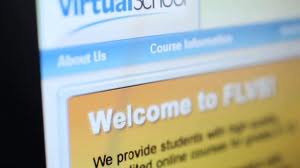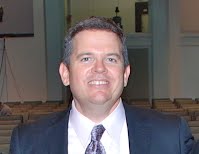When Naman Thackar tried to sign up recently for an Advanced Placement science class through Florida Virtual School, he said his guidance counselor told him he couldn’t.
 Instead, the Broward County ninth-grader was instructed to take the class through the school district’s virtual program. But when he tried to sign up, the course was full.
Instead, the Broward County ninth-grader was instructed to take the class through the school district’s virtual program. But when he tried to sign up, the course was full.
And when he contacted his guidance counselor, she said there was nothing she could do about it, said Naman’s father, Bharat Thackar. “Apparently, there were some budget cuts and she was told not to sign up kids to Florida Virtual.’’
Naman eventually got the class he wanted, but only after his father contacted Florida Virtual School and wrangled with district leaders.
More students may encounter the same battle this summer.
Lawmakers likely will approve a new funding formula this week that will leave districts with fewer state dollars when their students take courses through Florida Virtual School, the nation’s largest provider of online classes. The result, say FLVS officials, is some students are being told they can’t sign up for the program.
FLVS officials said they have heard it’s happening from students, parents and even guidance counselors from across the state. So has the Florida Department of Education.
“We did hear districts were telling students they could not sign up for the FLVS summer courses,’’ department spokeswoman Cheryl Etters confirmed. “We don’t know how many districts, but believe it is fairly widespread.’’
The trend is the result of a proposed funding shift that could pit districts against FLVS.
Right now, when students take six courses in their district school and one through Florida Virtual, the district receives its full per-student allotment and FLVS gets another one-sixth of the funding. (In FLVS’s case, it only gets funding if the student completes the course.)
The new funding formula caps the allotment so that the district receives six-sevenths of the funding and FLVS receives one-seventh. And the more Florida Virtual courses the student takes (about half of the FLVS population takes more than one course), the less funding the district and FLVS get.
“Brick-and-mortar schools will have little incentive to encourage or require students to take additional online courses from any virtual provider,’’ said FLVS spokeswoman Tania Clow. “Understandably, school districts will be thinking about their fiscal bottom line.’’
So will FLVS, which stands to lose about $34 million, said Holly Sagues, FLVS’ chief policy officer.
Public school students can choose what they take, but their guidance counselors have to sign off on the class. Typically, requests are denied because students don’t have enough credits or need a prerequisite course, Clow said. When the course is denied, FLVS is notified.
Last month, the program saw a 96.7 percent increase in the number of unapproved courses over the same month last year, which translates to an estimated $1.6 million loss, Clow said. It’s not clear how many of those denials were for academic reasons or due to the funding scare, she said.
Broward, where Naman attends Plantation High school, is among 11 districts with the most course requests through Florida Virtual. In April, district guidance counselors there denied 1,887 courses, compared with 746 during the same month in 2012, FLVS officials found.

“Schools have not been advised to deny enrollments with FLVS, but to recommend our franchise program first,’’ said Christopher McGuire, principal of Broward Virtual School. It’s what they do every year, he said.
Broward is one of 55 districts that has a franchise agreement with FLVS which allows the district to use its instructors to teach FLVS courses. The district has to pay a $50 enrollment fee for each course, but it gets to retain its full per-student funding.
Once Broward’s virtual program fills up, enrollments are supposed to go to FLVS, said McGuire, who serves as facilitator between the district and FLVS. So are requests for online courses Broward doesn’t offer.
He said it’s too early to tell if his program has seen an increase in enrollment for the summer. However, “the proposed funding change has created a greater urgency to rely upon our franchise,’’ he said. “People are quite anxious about this, including our school principals.’’
And that concern is stoking a lot of fear and confusion across the state, McGuire said.
No one really knows what the full impact will be until after July 1, when the proposed funding cuts would take effect. But it certainly threatens what has been a great partnership between districts and FLVS, he said.
“It’s a big economic black cloud that, in my opinion, is creating a funding war,’’ McGuire said. “I’m afraid students are going to lose in this.’’
State statute prevents school districts from limiting students’ access to Florida Virtual School. If students have been denied a course, they can contact FLVS’s school choice hotline at 1-866-644-8475. They also can log on to www.flvs.net/choice to report any challenges they encounter in receiving approval for their FLVS courses, Clow said.


